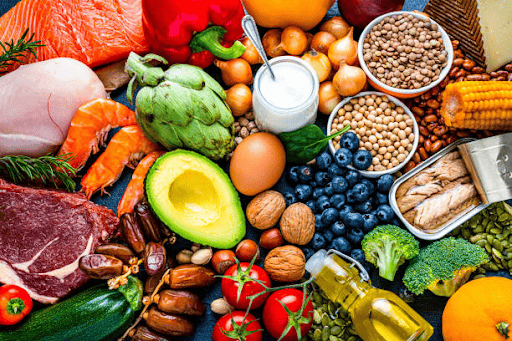Our ears are remarkable organs, allowing us to enjoy the sounds of the world around us. However, just like the rest of our bodies, our ears need proper nutrition to function well. Hearing health relies heavily on the nutrients we consume. Without them, we risk various problems, including hearing loss.
Keeping a balanced diet benefits your overall health and also enhances ear function. Visiting us for a regular hearing health exam is vital, but maintaining a nutrient-rich diet can serve as a proactive measure to protect your hearing.
Magnesium: The Protector
Magnesium acts as a barrier by safeguarding the delicate hair cells in the inner ear from damage. It can prevent noise-induced hearing loss by improving blood flow within the ear and reducing the potential harm caused by producing free radicals. Foods rich in magnesium include dark chocolate, nuts like almonds, seeds, bananas, spinach, and avocados. Introducing these foods to your diet protects your ears and promotes overall well-being.
Potassium: Balancing Fluids
Potassium maintains the correct levels of fluid in our bodies, directly impacting the fluid in the inner ear, which is necessary for hearing. As we age, potassium levels tend to drop, increasing the risk of age-related hearing loss. To help maintain these levels, incorporate bananas, potatoes, spinach, tomatoes, and oranges into your diet. These dietary habits can assist in maintaining proper fluid balance and improving optimal hearing function.
Zinc: The Immune Booster
Zinc is integral to boosting our immune system and warding off ear infections that can adversely affect hearing. Adequate zinc intake aids in cell growth enhances wound healing, and even safeguards the cochlea, which is the inner ear’s spiral-shaped cavity. Including foods like oysters, beef, pumpkin seeds, cashews, and dark chocolate in your diet can maximize your body’s zinc level. Regular consumption of these foods can reduce ear infection risks and help sustain hearing health.
Folate: Regenerating Cells
Folate, or Vitamin B9, facilitates the regeneration of cells, a process crucial for maintaining healthy ears. It enhances blood circulation, ensuring the adequate delivery of essential nutrients and oxygen to the inner ear. This action helps prevent hearing loss. Green leafy vegetables like spinach and kale, legumes, and fortified cereals are excellent sources of folate. Eating these foods frequently ensures efficient cell regeneration and circulation, enhancing overall auditory health.
Omega-3 Fatty Acids: Strengthening Hearing
Omega-3 fatty acids are essential for brain and cardiovascular health and play a significant role in maintaining hearing. Studies suggest that seniors with a diet rich in Omega-3 are less likely to experience age-related hearing loss. Cold-water fish such as salmon, trout, and mackerel are high in Omega-3. Flaxseeds, chia seeds, and walnuts are also excellent sources. Including these in your diet can improve heart and brain health and significantly strengthen your hearing ability.
Vitamin A and E: Powerful Antioxidants
Vitamins A and E serve as powerful antioxidants that protect the delicate hairs in the inner ear from harmful free radicals. These vitamins can help in reducing the risk of hearing loss and support the immune system. Carrots, sweet potatoes, spinach, and apricots are rich in vitamin A, while almonds, sunflower seeds, and leafy green vegetables are high in vitamin E. Including these foods in your meal plan can provide your ears with the protection they need, enhancing your overall hearing health.
Scheduling Regular Hearing Health Exams
While ensuring your diet is rich in vitamins and minerals, it is important to have regular hearing health exams. These exams can detect any early signs of hearing loss and allow for timely intervention. Contact us to schedule a comprehensive hearing test today!

